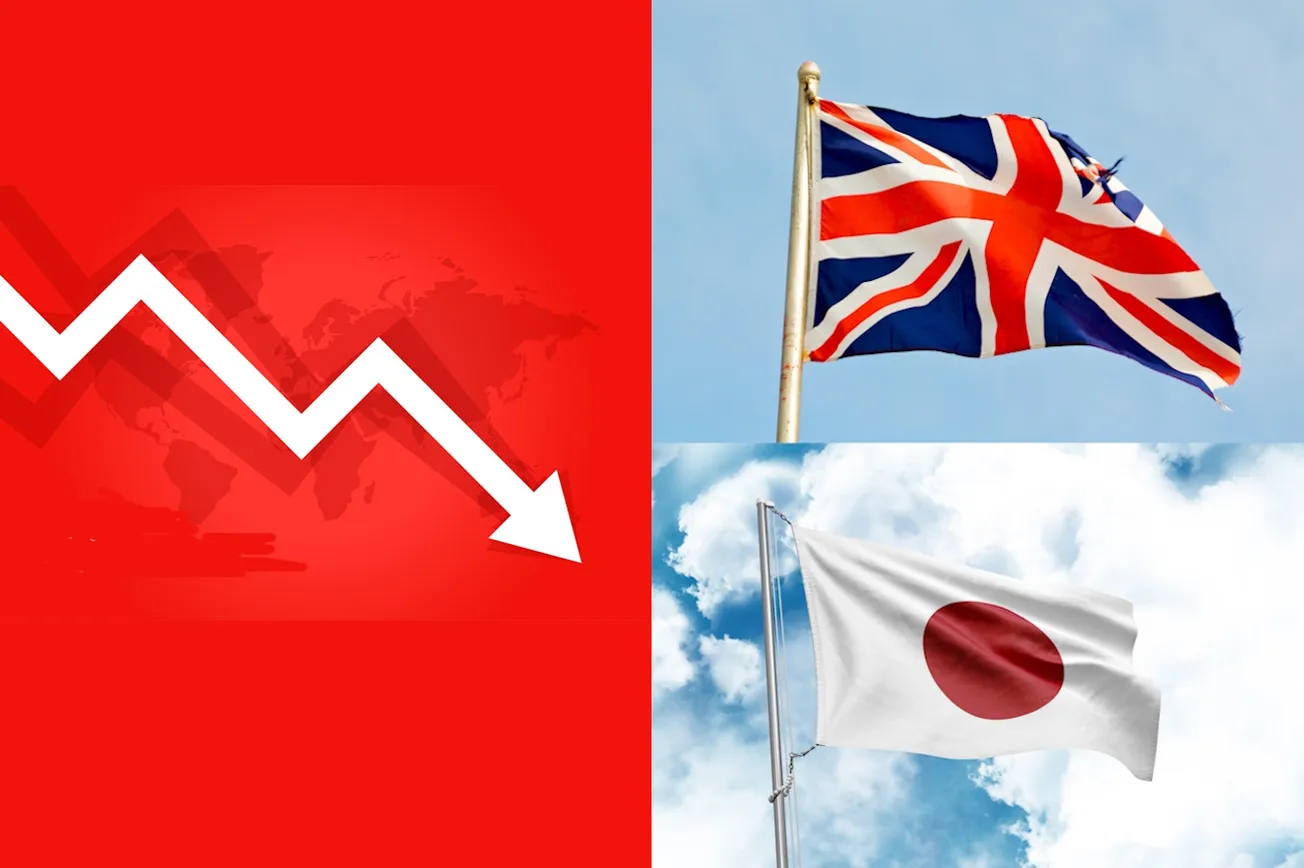Two major world powers - Japan, the third-largest economy, and the United Kingdom, ranked sixth - slipped into recession this week as economic activity slowed.
A country's GDP is a measure of its total economic performance. The IMF defines GDP as the monetary value of final goods and services bought by the final user in a country in a given period. A recession occurs when a country's real GDP falls over two consecutive quarters.
The recession news is a shocker in Japan, which has not raised interest rates like the Fed, the European Central Bank, or the Bank of England to fight inflation. Japan can't lower interest rates now to stimulate growth and come out of a recession because its rates are already below zero. Worse, reducing rates risks exacerbating inflation as a flood of Japanese yen seeks fewer goods, sending the country into stagflation - an economic cycle in which a country's GDP is not growing but is also fighting inflation and high unemployment.
So bad were Japan's numbers that it lost its third rank in global GDP output and dropped to fourth, behind the United States, China, and Germany. The irony is that Germany has been in a recession for over six months.
Nine time zones away, the United Kingdom also fell into a recession. Following the Fed's lead, the Bank of England had aggressively raised interest rates 14 consecutive times over the past two years to combat inflation. With inflation still not falling, the country is in a bind - prices may rise again if the UK lowers interest rates to boost the sagging economy. There are few other tools besides the government borrowing money and spending it on public projects, a risky proposition as the British Pound may devalue.
Indeed, devaluation has been happening in Japan as the government continues to borrow and spend. In December 2020, one dollar bought 103 yen; today, it buys over 150 yen. Translated, it means that the yen has devalued by over 45% in three short years.
According to World Bank data from December 2023, the top ten countries by GDP were ranked thus in millions of U.S. dollars.

When we map countries to the Ukraine-Russia conflict, it is clear that countries that have steadfastly supported Ukraine by sending billions of dollars and ammunition to the war-torn nation and engaged in banning Russian imports have suffered greatly.
Germany, which had plumbed its vast manufacturing economy to rely on Russian energy, forced itself to join Western sanctions and seek alternate energy sources by paying higher prices in the Middle East and the U.S. The cost of production went up so dramatically that German industrial exports could no longer compete with China and Japan, the world's other manufacturing powerhouses. Germany was the first to enter into a recession last year. It remains in a recession now, with forecasts calling for only slight improvement throughout 2024.
With Japan and the U.K. joining Germany in the recession pit, Canada may be next. Canada's GDP barely budged in 2023, shrinking by 0.3% in the third quarter. Italy continues to suffer like other Eurozone countries, slowing to 0.7% growth in 2023 and 2024. All these Ukraine supporters have relied on imports from Russia and Ukraine for decades to keep their economies humming. Their foolish sanctions and continued misguided policies not to seek an end to the war have cost them dearly. Politicians can get away with their mistakes, but the ordinary person on the street is impacted.
America, growing at 3.3% in 2023, has performed surprisingly well, partly because of its vast size and access to natural resources, including oil. America is less dependent upon Russian or Ukrainian agricultural or energy exports. But there are warning signs ahead. With a critical inflation measure's uptick in January, the expected Fed interest rate cuts in March or May may not happen. America is already $34 trillion in debt, with interest payments to service the debt alone topping $1 trillion.
The GDP list above shows that supporting a war and a sanctions regime hurts deeply, and not being so directly involved can help. India and China have been officially neutral, although both countries have continued to trade with Russia. India's economy performed the best among the G20 in 2023, growing at over 7%. China's grew at a little over 5%. Despite being battered by sanctions, even Russia's economy grew at 3.6%.
Against this backdrop, the United States Senate fulfilled the Biden administration's relentless requests to send $61 billion additional funds to Ukraine to prolong the war. The ridiculous and illogical move could worsen the economic situation of millions worldwide while adding to the death, destruction, and dislocation in the conflict zones.
We hope that the GOP-led House corrects the course.








